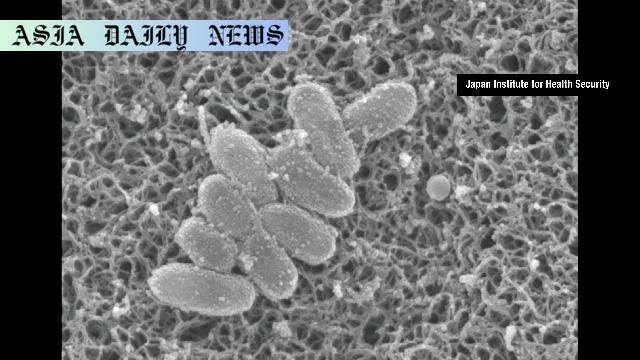Whooping cough is an infectious bacterial disease characterized by intense and persistent coughing, especially among children.
Whooping cough cases continue to rise in Japan, reaching 2,176 in one week.
The cumulative number of cases in 2023 is more than double the amount last year.
Unvaccinated infants are at high risk, with some cases proving fatal.
The Japan Pediatric Society is encouraging early vaccination for infants.

Surging Whooping Cough Cases in Japan
Japan continues to witness an alarming surge in whooping cough cases, with a notable 2,176 cases reported during the week ending April 27, marking an increase of 292 from the previous week. This figure is the highest weekly record since the current tracking system was implemented in 2018, further breaking records for the fifth consecutive week. Since the start of 2023, a cumulative total of 11,921 cases has been recorded, more than doubling last year’s total—highlighting the severity and widespread nature of this outbreak.
Impact by Prefecture
The outbreak has impacted several key prefectures across Japan. Tokyo and Fukuoka saw the highest numbers with 142 patients each. Niigata followed closely with 132 cases, while Hyogo and Osaka documented 110 and 105 cases, respectively. The widespread nature of the infections demonstrates how rapidly this contagious disease is spreading, further underscoring the need for preventive measures, especially in high-risk areas. Medical professionals and public health authorities in these areas are working tirelessly to address the outbreak and reduce its impact.
Impact on Vulnerable Populations
Whooping cough is a bacterial disease primarily affecting children, characterized by persistent coughing fits. It poses significant risks to infants, particularly those under six months of age, for whom it can lead to severe illness or fatality. Tragically, some unvaccinated infants have already succumbed to the illness in the midst of this outbreak. Additionally, some cases are reportedly resistant to conventional antibacterial treatments, complicating efforts to manage the disease effectively. This highlights the urgency for parents to ensure early vaccination for their children to protect them from this life-threatening disease.
Measures and Recommendations
In light of the current outbreak, the Japan Pediatric Society has strongly urged parents to have their infants vaccinated promptly upon reaching two months of age. Vaccinations are one of the most effective ways to prevent whooping cough and protect vulnerable populations, including young children and those with compromised immune systems. Public health officials are also emphasizing the importance of practicing good hygiene, such as regular handwashing and avoiding close contact with infected individuals, as additional steps to curb the spread of the disease. Efforts to educate the public on the symptoms and preventive measures remain a priority as officials work to control the ongoing crisis.
Commentary
The Stakes of Rising Whooping Cough Cases
It is deeply concerning to witness the rapid escalation of whooping cough cases in Japan this year. The sheer number of reported cases—11,921 thus far—underscores the urgent need for systemic intervention and public awareness campaigns. The vulnerability of infants, who are especially at risk of severe complications or even death, should galvanize parents and health authorities to prioritize vaccination efforts. As the Japan Pediatric Society has emphasized, timely vaccination starting from two months of age can make all the difference in protecting the youngest members of society. Prevention is always better than cure, particularly when dealing with an illness that can cause such devastating consequences.
Implications of Drug-Resistant Cases
Another alarming aspect of this outbreak is the rise of cases resistant to conventional antibacterial treatments. This serves as a poignant reminder of the growing global challenge posed by antibiotic resistance. It is a sobering thought that even with advancements in medicine, the effectiveness of traditional treatments can be diminished over time. This development necessitates further research into alternative treatments and more robust prevention strategies. In the short term, it also highlights the critical importance of vaccination as the most reliable line of defense against whooping cough.
Community-Driven Prevention and Awareness
Ultimately, addressing this public health crisis will require a concerted effort from all stakeholders—parents, healthcare providers, government agencies, and the general public. Beyond vaccination, fostering a community-wide culture of vigilance and awareness is essential. Parents should be empowered with accurate information about the symptoms and risks of whooping cough, as well as practical steps they can take to protect their children. Public health campaigns must also address the importance of hygiene practices to reduce the likelihood of transmission. By working together, we can hope to mitigate the impact of this outbreak and safeguard the health of future generations.


